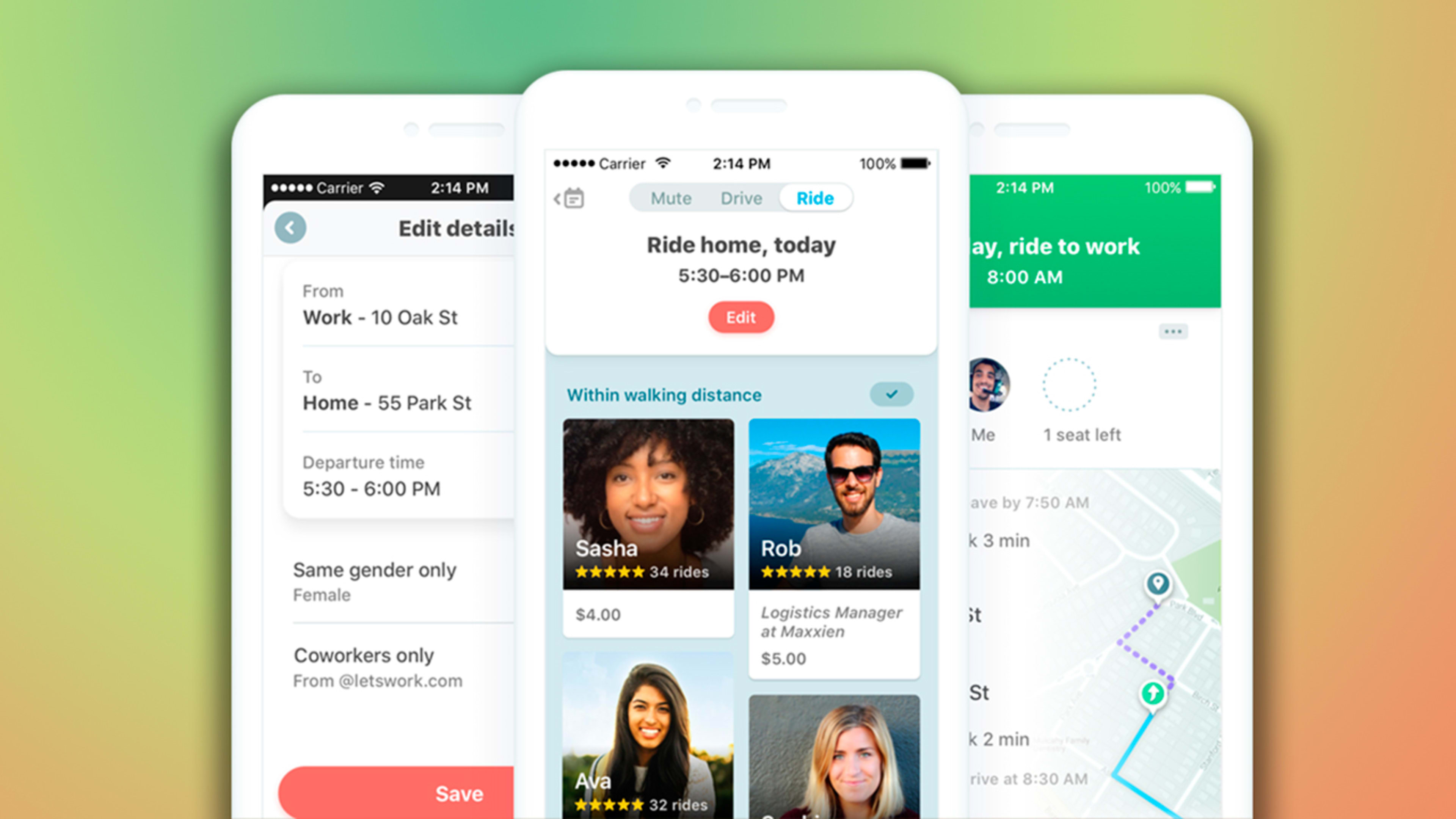Google now provides commuters around the country with a way to find a ride to work. On Wednesday, the company’s mapping app, Waze, opened up its Carpool service to the rest of the U.S.
Waze is best known as a crowdsourced live-mapping app. It has 110 million active users around the country. Its Carpool app first launched in 2016 in San Francisco. In the last year, the company has expanded the service to 13 states, including the rest of California, Texas, Washington, Massachusetts, Illinois, and Nevada. It’s also launched the app in Israel and Brazil and has plans to bring this service to Europe.
The Carpool app allows people to search for people near them who are heading to the same area for work, or even to the same office, and then share the cost of a commute.
“We tried to build a cheaper version of a ride-hail app,” says Noam Bardin, CEO of Waze, of the company’s initial efforts, “but what we missed was the human element of it.” In March, the company relaunched the app with new filters to refine the search process, making it easier for people to find rides with people within their network of friends or colleagues. It also introduced ratings and the choice to choose the gender of the driver. Already 1.3 million people have said they’d be interested in listing themselves as drivers on the platform. In order to drive growth, Waze also partners with government agencies, schools, and companies to rally employees and students to carpool on the platform.
The fundamental task that Waze aims to solve is traffic reduction. “We don’t believe there’s going to be a big government investment or technology that’s going to solve this,” says Bardin.
Waze hasn’t attracted the same kind of attention as some of Google’s other projects, like its self-driving car project, Waymo, for example. The latter frequently touts its miles driven on public roads (10 million as of today) and its virtual miles driven (7 billion). Meanwhile, its pilot self-driving ride service in Arizona, which caters to some 400 riders, understandably draws a lot of attention.
But Waze is just as interesting. The service, now national, competes with both Lyft and Uber, which offer their own shared ride options for commuter crowds. Of course, ride-hail platforms differ from Waze. Drivers on Waze Carpool are not professionals, for instance. They’re just regular people. And riders don’t pay fares; they essentially pay for gas. Moreover, Waze does not take a cut of the money that flows from rider to driver, though Bardin says it will once the service gets enough density.
“I think there are really nice ad opportunities for riders,” says Josh Fried, head of Waze Carpool. “This is just me spitballing, but you could show a rider a two-minute movie preview, like a trailer, paid for by a movie theater that subsidizes that ride. That’s not something we could do with drivers.”
The platform also gives Google access to crowdsourced data around routes, commutes, traffic, and information on riders, drivers, and what makes for a good group trip. Both Lyft and Uber have touted that kind of data as vital in a world where cars will drive themselves. Waze and Waymo don’t work together in any capacity right now. But down the road, it’s easy to see how Waymo’s autonomous cars might make their way into the Waze carpool network.
“We hope to get there,” says Bardin of working with Waymo, but notes that it’s still early days for both companies, and it doesn’t make sense to waste resources on working together.
Bardin’s bigger vision is that Waze will become a more all-encompassing transit app. He says that one day, Waze could be used to book an entire commute, allowing customers to match with a carpool partner as well as buy fares for mass transit. In the meantime, Waze is focused on giving cities and commuters a way to help reduce traffic today by pooling together.
Recognize your brand’s excellence by applying to this year’s Brands That Matter Awards before the early-rate deadline, May 3.
